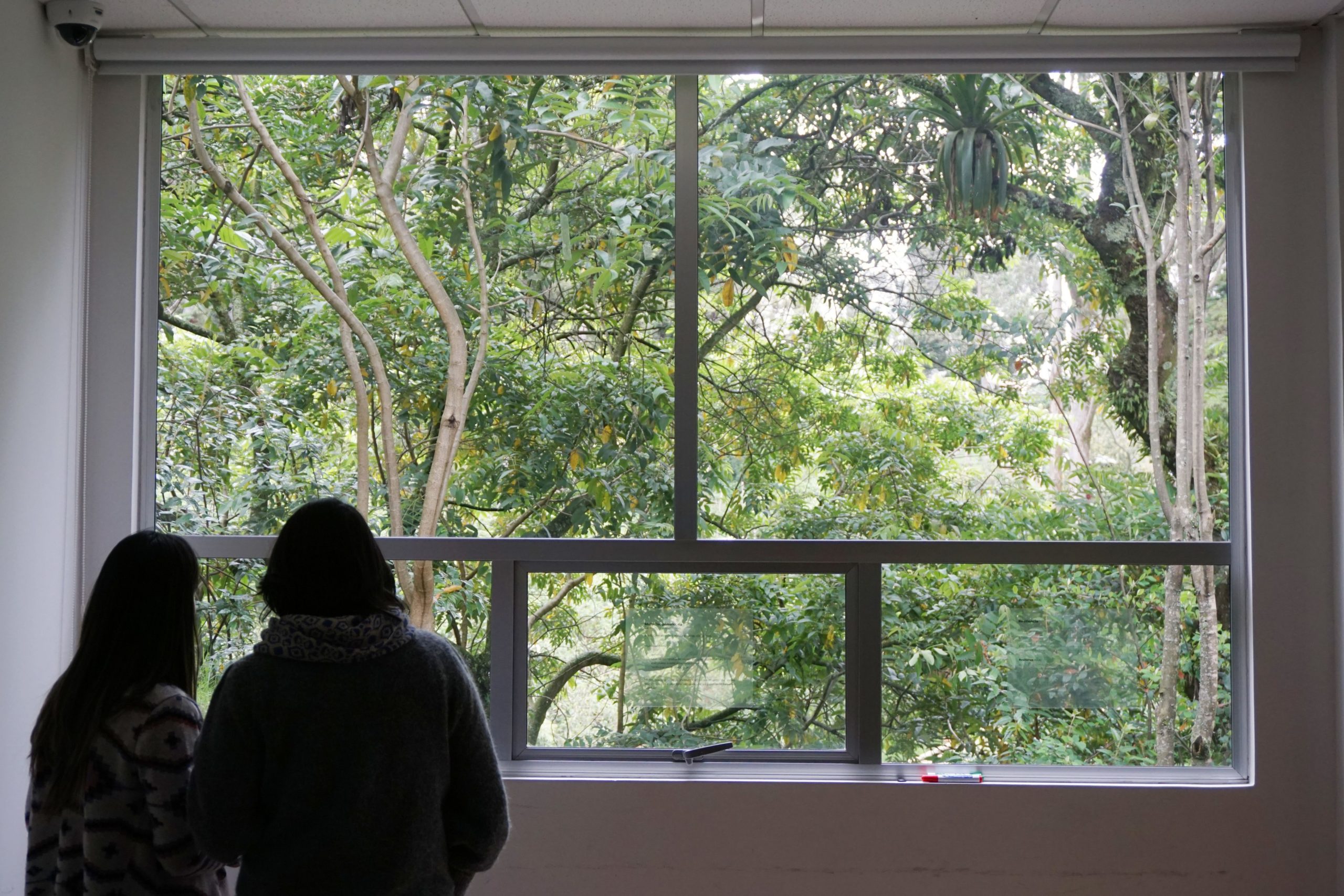
Posted by seilafdza
18 May 2019This workshop was facilitated by Olga Lucia Hernandez and Seila Fernández Arconada with a number of previous discussions between Mónica Amador, Olga Lucia Hernández, Alejandra Osejo y Seila Fernández Arconada in order to accomplish the program of the day.
There was an intervention at the windows of the workshop room. Each window holds a concept that is over-layered with the forest behind. The difficulty of reading depending on the close focus; interferences are always present but even behind in this case (and others) the most important thing is what we are working for, the forest. This metaphor nevertheless is a glimpse to accompany the journey across concepts including multidisciplinary, interdisciplinary, transdisciplinary, forest, resilience among other conceptual representations that bring all participants to the here-and-now and the aim of collaborating during this workshop and beyond.
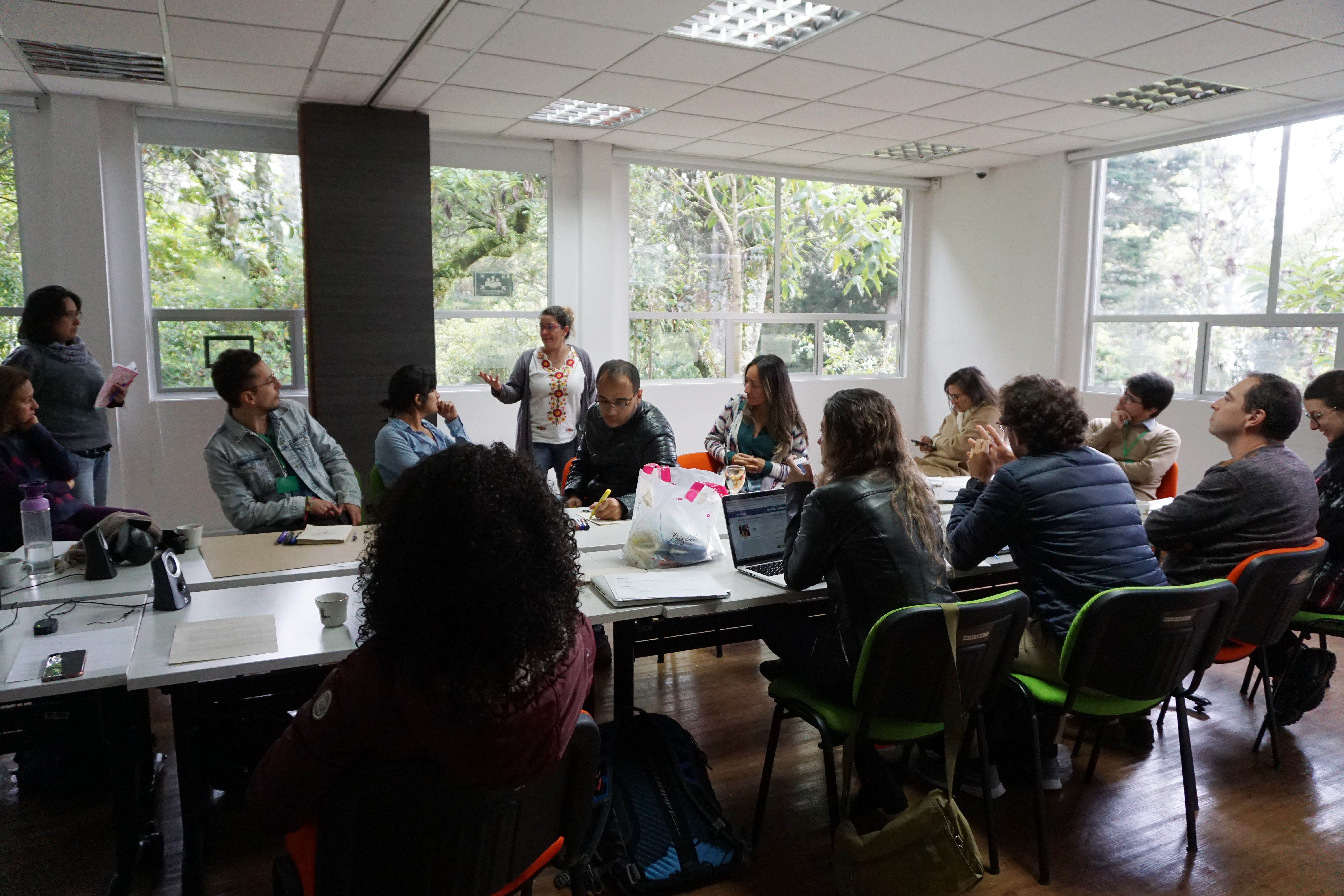
Resilience workshop, 17th of May 2019. Instituto Humboldt, Bogotá.
The introductory activity as an “ice breaker” was the “knot” activity. Each participant was given a paper and two pieces of string. The paper had a narrative around the concept and instructions to accomplish the task which was “make a knot that represents yourself”. This invitation was, therefore, a strategy to bring each participant to a more intimate atmosphere as this simple task could be taken from all possible perspectives while bringing in creativity from start. This also enabled people to be thinking while waiting for the others to arrive.
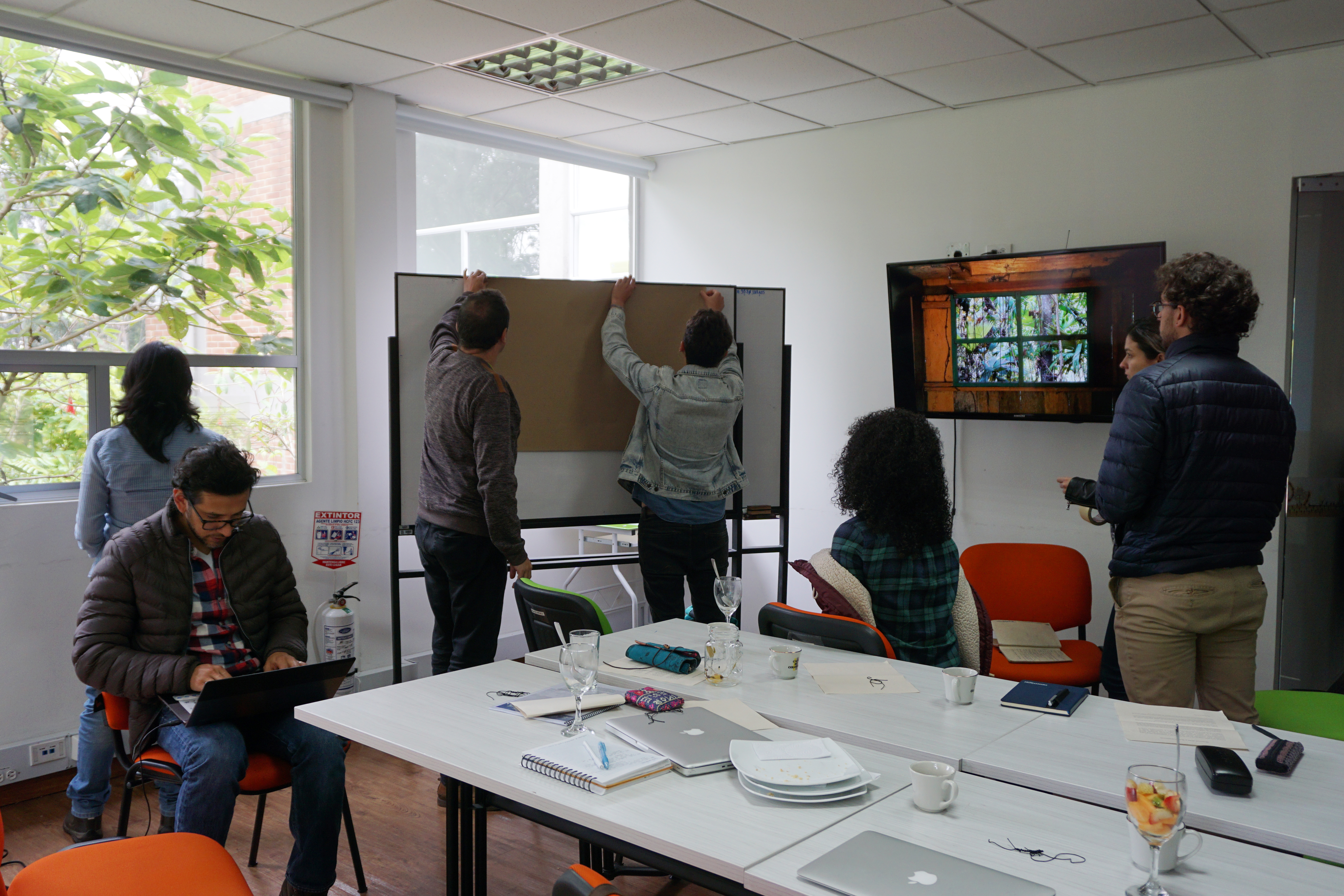
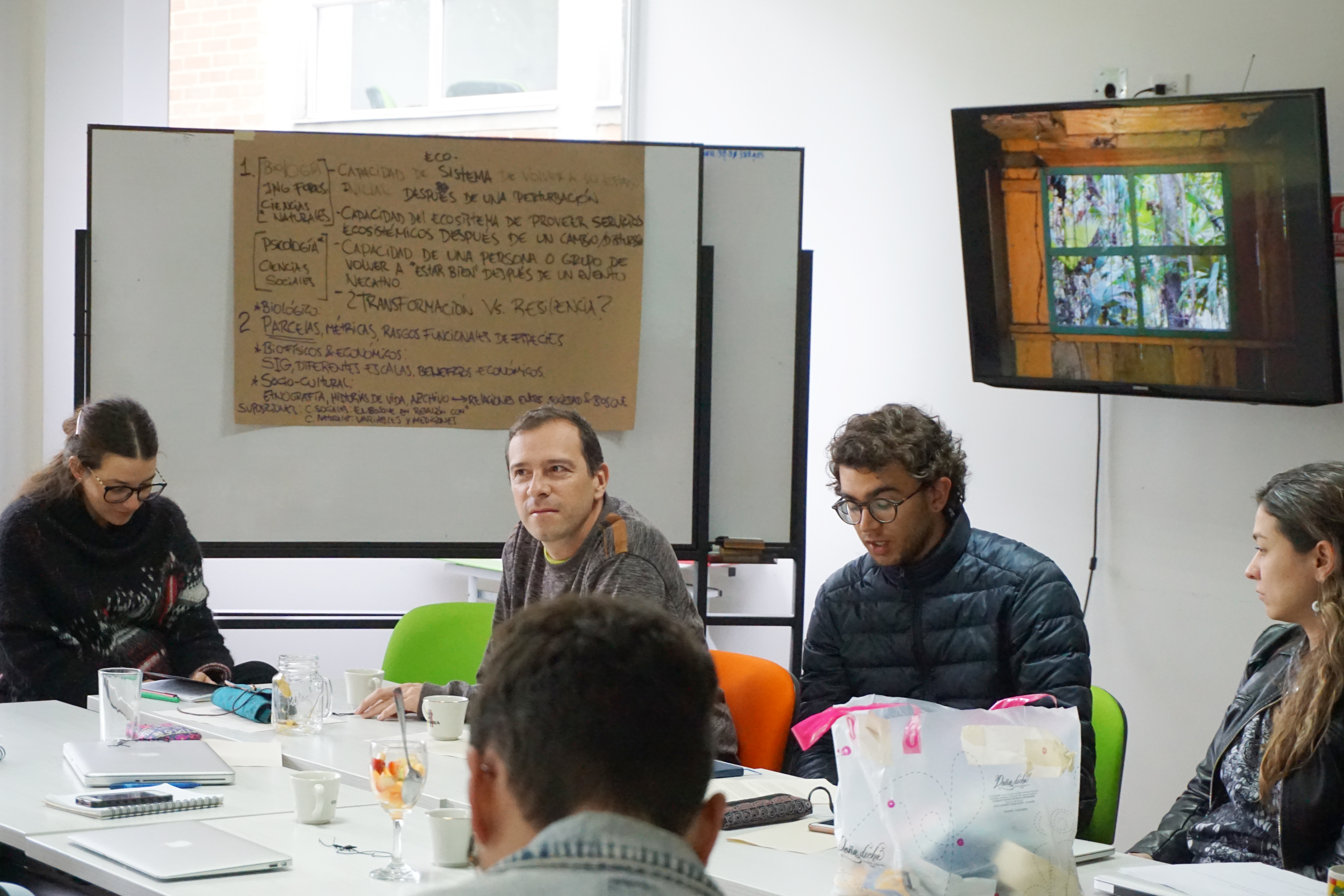
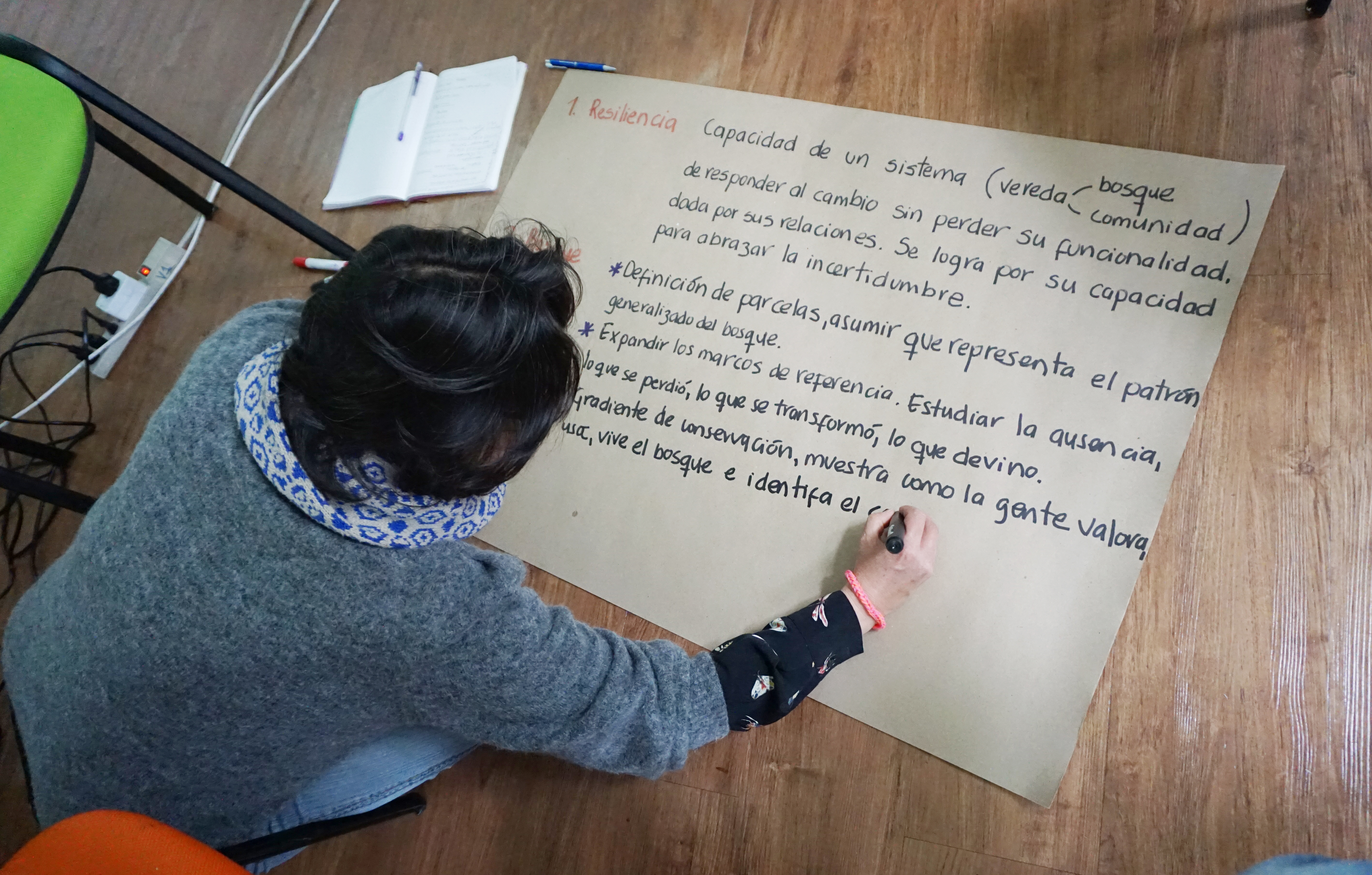
The workshop continued with presentations by the BioResilience team and a number of project examples from Instituto Humboldt and Seila. In addition, the workshop was followed by dividing participants into smaller groups where they had the opportunity to discuss the research questions that all components of the project Bioresilience were already discussing about:
After discussion, highlights were shared with the rest of the participants. In particular, it was interesting how differently each group tackled the concepts which were then shared with all participants.
Text and photos by Seila Fernández Arconada